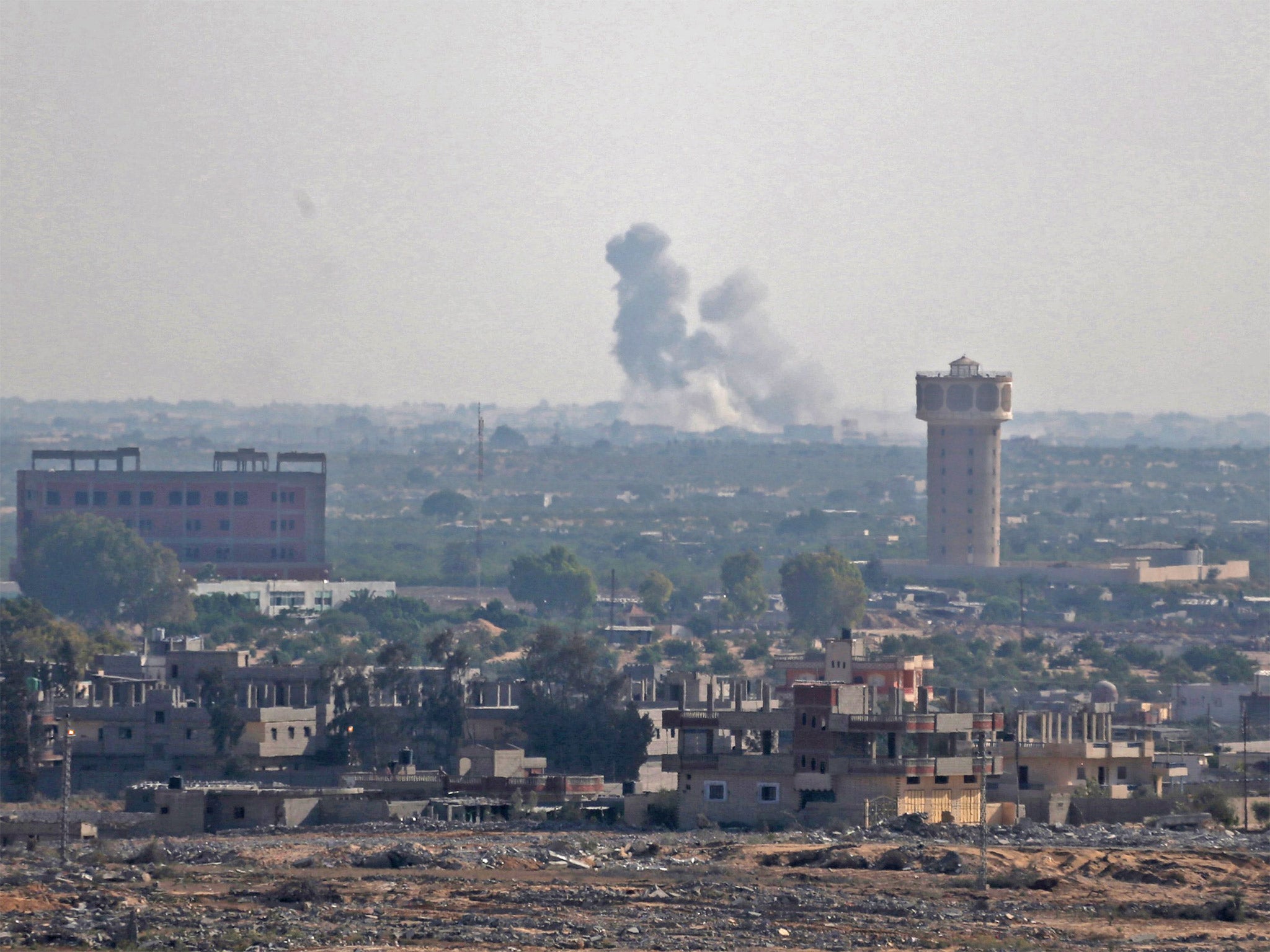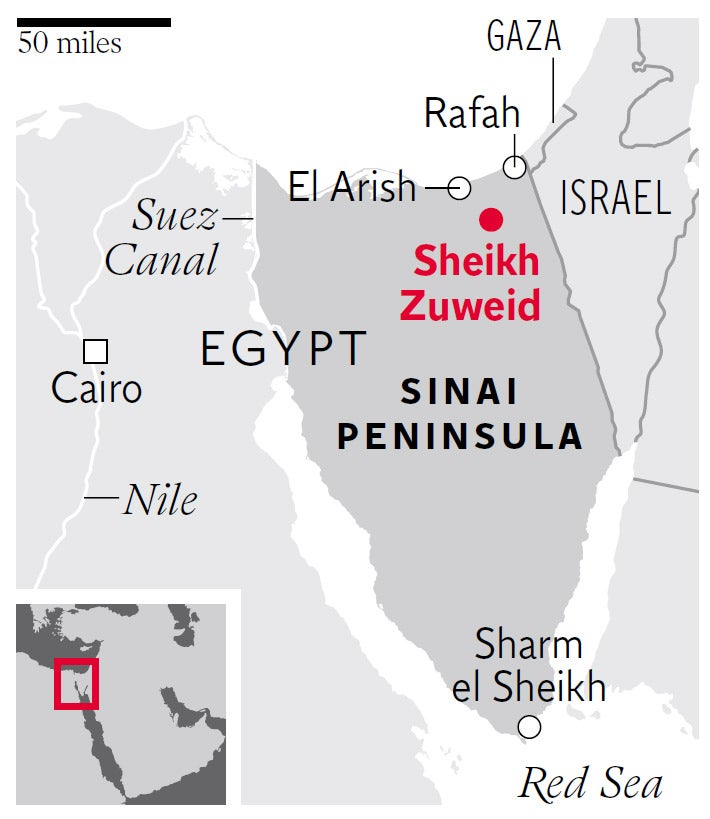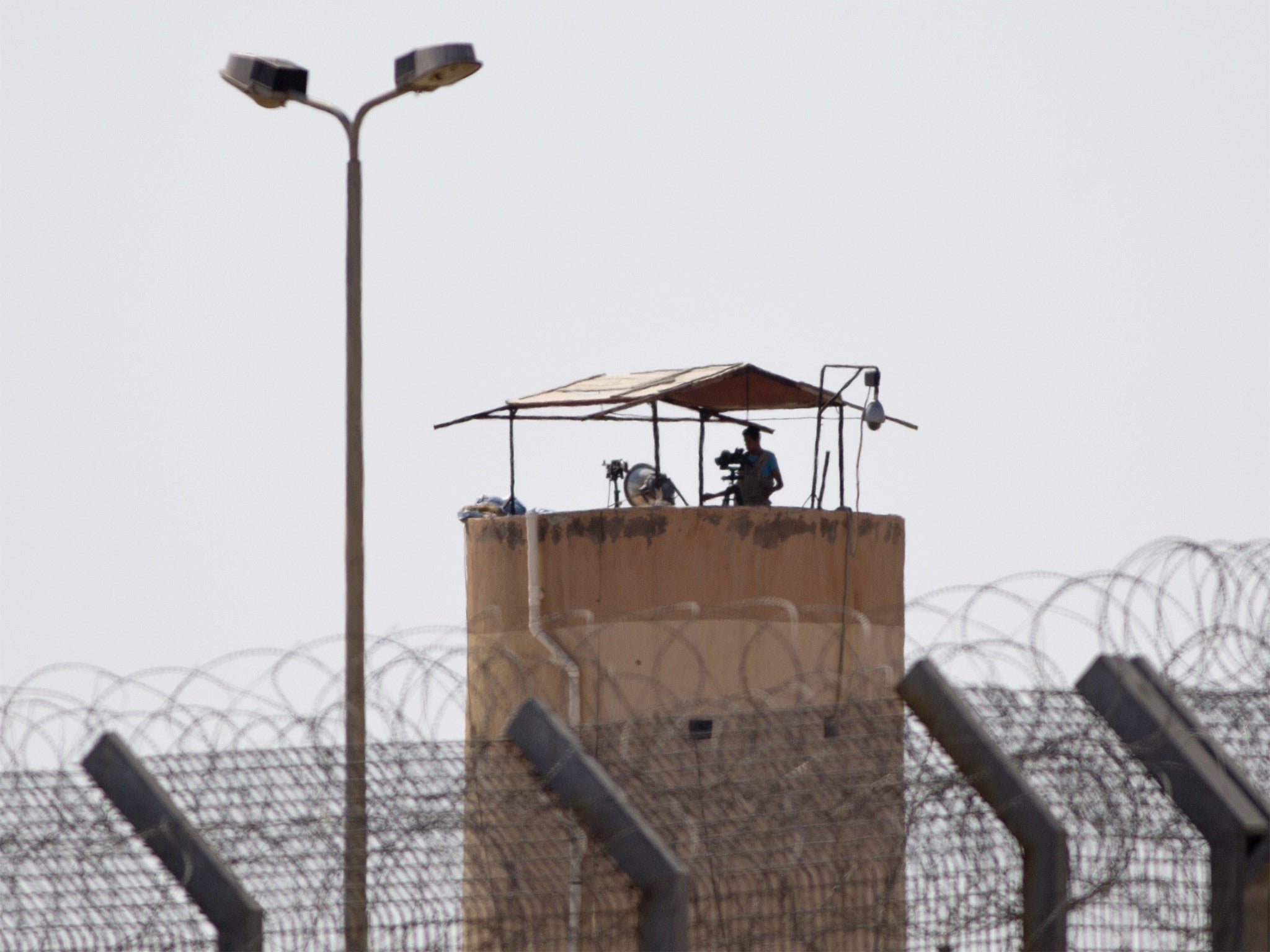Isis in Egypt: Wave of attacks across country signals frightening upsurge in militant activity
Strikes against military and police targets in the Sinai province kill at least 64, presenting President Sisi with a serious challenge – and leaving the extremists mere miles from the Gaza Strip

Your support helps us to tell the story
From reproductive rights to climate change to Big Tech, The Independent is on the ground when the story is developing. Whether it's investigating the financials of Elon Musk's pro-Trump PAC or producing our latest documentary, 'The A Word', which shines a light on the American women fighting for reproductive rights, we know how important it is to parse out the facts from the messaging.
At such a critical moment in US history, we need reporters on the ground. Your donation allows us to keep sending journalists to speak to both sides of the story.
The Independent is trusted by Americans across the entire political spectrum. And unlike many other quality news outlets, we choose not to lock Americans out of our reporting and analysis with paywalls. We believe quality journalism should be available to everyone, paid for by those who can afford it.
Your support makes all the difference.Jihadists aligned to Isis have carried out a series of devastating assaults in Egypt’s Sinai province, following earlier attacks elsewhere in the country, making it the most serious escalation of anti-government violence for years.
The wave of raids launched on military and police targets left at least 64 soldiers dead, and signalled a frightening upsurge in militant activity that suggests Isis is growing in power inside the most populous Arab state. The Egyptian military said that more than 100 of the attackers had been killed and 20 injured.
The Muslim Brotherhood called for a rebellion to overthrow Egypt’s President, Abdel Fatah al-Sisi, after special forces killed nine members of the outlawed Islamist movement during a raid on a Cairo apartment. The dead included Nasr al-Hafi, a former Brotherhood MP.
The Brotherhood denounced “the traitorous coup regime” – Mr Sisi became President after ousting the country’s only democratically elected leader, the Brotherhood’s Mohamed Morsi, in 2013 – and said it had “assassinated” a group of its leaders.
“To the proud people of Egypt … This unjust tyrant has done his worst. Rise in revolt to defend your homeland, your lives and your children,” it said.
While the Brotherhood is an Islamist group, it is far removed from the murderous Isis regime.
Around 70 jihadist fighters linked to Isis launched the initial attack at around 10am. By the end of the morning, the jihadists claimed in a statement published online, they had attacked 13 checkpoints, and seized military equipment around Sheikh Zuweid, in North Sinai province. There were further attacks across the districts of Sheikh Zuweid and al-Arish, and in Rafah, which borders the Palestinian enclave of Gaza.
The Islamists then struck two military vehicles and surrounded and besieged the local police station for several hours.
With electricity and mobile phone lines down in the area, reports from people inside Sheikh Zuweid were sparse. Local residents reported that the militants stormed the town, seizing houses in order to fire rocket-propelled grenades and other weapons from their rooftops while terrified residents sheltered inside.
Sheikh Mousa El-Ersh, a senior figure in Sheikh Zuweid, who was in nearby Arish when contacted by The Independent, described the fears of those in his district that they would be targeted by militants. “They target anyone who they believe co-operates with the army,” he said.
The Islamist attackers planted explosive devices along roads and between houses to prevent Egyptian army reinforcements and ambulances from reaching the town, according to reports from inside. It took until almost 5pm, seven hours after the first incursion, for ambulances to reach Sheikh Zuweid.

In response to the attacks, the Egyptian military launched air strikes in Sheikh Zuweid, using F-16 fighter jets and Apache helicopters to target the area where jihadists were thought to be concentrated.
The attack represents the largest and most co-ordinated strike by the Egyptian Isis-linked group, which is now calling itself State of Sinai. Formerly known as Ansar Beit al-Maqdis, the group swore allegiance to Isis last November, and is considered to have around 1,000 fighters, according to estimates by the Tahrir Institute for Middle East Policy.
A previous attack last October killed at least 31 soldiers at checkpoints around Sheikh Zuweid. In January this year, a further 26 soldiers were killed when the jihadists attacked a military base, a police checkpoint and a military hotel. Isis had urged its followers to escalate attacks during Ramadan, which started in mid-June, though it did not specify Egypt as a target.
“The difference in today’s attack is the infiltration of Sheikh Zuweid and the preparation for urban warfare instead of hit and run attacks,” said Zack Gold, a visiting fellow at the Institute for National Security Studies. “As attacks and military counter-strikes are ongoing, it is difficult to know if the Isis-linked militants are attempting to hold territory or simply draw the military into conflict.”

He said there was a heightened risk to civilians now that the group had evolved from Ansar Beit al-Maqdis, which claimed to be a champion of the local population, into the more aggressive State of Sinai.
On Monday, Egypt’s Attorney-General, Hisham Barakat, was killed when a car bomb struck his convoy in Cairo’s Heliopolis district. The next day, two car bombs detonated near a police station in the capital’s 6th October neighbourhood, killing three.
In a speech following General Barakat’s funeral, Mr Sisi declared: “We will make amendments to laws so we can achieve justice in the swiftest possible time.”
Egypt’s cabinet discussed ever-harsher changes to anti-terrorism law, which could result in judges no longer being obliged to hear defence arguments, and guaranteed death sentences.
Join our commenting forum
Join thought-provoking conversations, follow other Independent readers and see their replies
Comments